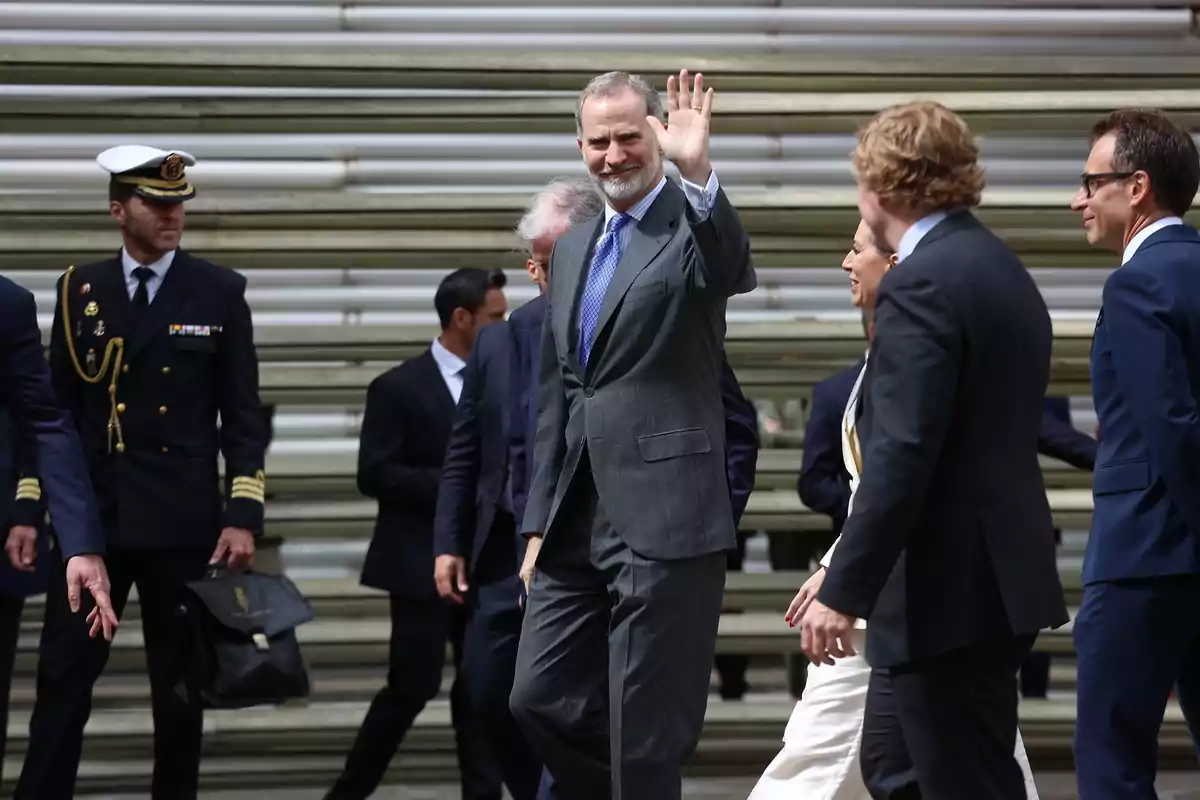
International announcement about King Felipe: he has spent time far from Spain and it will be historic
King Felipe stars in an event in Slovakia that has caused an international announcement and an ancestral welcome
King Felipe has played a historic role far from Spain, making an international announcement that has captured the attention of media outlets around the world. During his visit to Bratislava, Slovakia, he was welcomed with the traditional offering of bread and salt at Grassalkovich Palace. This gesture, full of ancient symbolism, marks the beginning of a visit that will be remembered for its strategic and diplomatic character.
The monarch's trip, accompanied by Defense Minister Margarita Robles, aims to strengthen Spain's presence on NATO's eastern flank. The king will attend the conclusion of the Strong Lineage 25 military exercise, led by Spain, in which more than 1,900 troops are participating. Why has this visit been considered historic and what does this gesture represent for international relations?

International announcement about King Felipe: travels to Slovakia to strengthen Spain's role in NATO
Although it may seem anecdotal, King Felipe's reception with bread and salt is not a minor detail. In Slavic cultures, this ancient custom is reserved for prominent figures or solemn occasions such as weddings or state events. Bread symbolizes prosperity, and salt symbolizes friendship and hospitality, so Slovak President Peter Pellegrini wanted to honor the monarch with this gesture.
This detail takes on special significance in a geopolitical context where symbols carry as much weight as agreements. King Felipe's presence in Bratislava is not only protocolary, but also responds to a broader security strategy in the face of Putin's Russia threat.
King Felipe's visit comes at a key moment for European defense. Upon his arrival in Bratislava, the monarch was received with military honors, performances of national anthems, and a bilateral meeting with the Slovak president. Afterwards, both leaders introduced their respective delegations and the king signed the guest book.
However, the day did not end there, as early Wednesday morning, he traveled to Lest, where Spain leads a multinational brigade within NATO. This brigade includes troops from Slovakia, Slovenia, Portugal, Romania, and the Czech Republic. The main objective: to deter external threats and consolidate allied presence in Eastern Europe.
In this exercise, called Strong Lineage 25, nearly 1,900 soldiers participated. According to sources from the Ministry of Defense, the purpose was "to reach the brigade operational level" and improve coordination among the participating forces. King Felipe's presence was not only symbolic, but also served as institutional support for a high-level operation.
During his time in Lest, King Felipe was once again received by the Slovak president, accompanied by high-ranking civilian and military officials. Among them was Lieutenant General Luis Sáez, head of the High Readiness Land Headquarters and leader of the Strong Lineage 25 exercise. In addition, other high-ranking officials such as Brigadier General Alfonso Pardo de Santayana, head of the Galicia VII Brigade and the multinational brigade, were present.
King Felipe becomes a key figure for European stability
This historic act led by King Felipe becomes even more significant when analyzed in the context of growing geopolitical tension. Since the beginning of the conflict in Ukraine, NATO has strengthened its presence in Eastern Europe. Spain, in particular, has taken on a prominent role by leading one of the eight multinational brigades on the eastern flank.
This type of act, far from being a simple protocolary gesture, is part of this deterrence strategy. By personally supporting the troops and witnessing the conclusion of the military exercise, King Felipe reinforces the message of unity, leadership, and commitment to common security.

The historic visit of King Felipe to Slovakia has not gone unnoticed. His role as a leader in the Strong Lineage 25 exercise and the symbolic welcome with bread and salt highlight the institutional and diplomatic weight of the Spanish monarchy. With his presence, the monarch reaffirms Spain's commitment to European defense and strengthens his image as a key figure on the international stage.
More posts: